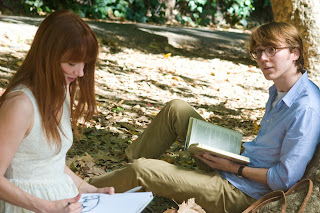Semiotic analysis of Apsurdistan's coat of arms
The cover of Dubioza Kolektiv's album represents the coat of arms of the country of Apsurdistan. This country does not necessarily represent a geographical area but a mental and a social state, although band members base their lyrics on the situation in Bosnia and Herzegovina. The picture depicts all the problems encountered in this country described in songs, not only on this particular album, but on several other ones.
The use of different motifs and juxtaposing seemingly opposite symbols represent the absurd of the country where most of the people live. In this short analysis I will try to give certain explanations of symbols and motifs used in the coat of arms.
At the very top of the emblem there are two symbols. Hammer and sickle and EU stars. One representing the former system and the other representing the present or the future one. Apparently opposite systems seem to co-exist in Apsurdistan, and even though both have their good and bad sides it seems that Apsurdistan somehow picks up only the bad ones.
Four religious symbols represent the groups people usually place themselves. People feel the necesity to belong to a certain group, and religion is one of the criteria. The absurd occurs when the members of one religious group, or one ethic group, have the feeling of superiority over others. Equally important absurd is the one when the differences between the groups, usually based on stereotypes or tradition, become emphasised when the stress should be on the unity of people who share the same environment and problems. One Dubioza's verse perfectly connects these religious symbols with the fork and the knife: "Just keep praying for your religions, it doesn't matter if you have anything in your fridge or not." (trans: I.M.)
The two rifles placed next to the fork and knife represent the everyday life in Apsurdistan, easily described as the powder keg.
One of the rifles is pointed to the hummingbird. A bird which is usually a figure of peace and love.
Sheep and an ostrich. Both, obviously, represent people of Apsurdistan. Sheep, animals that are easily manipulated with, and even if they get wings they do not stand a chance. Ostrich, an animal which, it was believed, bury its head in sand to avoid danger. Even though this myth is proved wrong, the metaphor is still there. People of Apsurdistan bury their head, play dumb, but in this way they expose their whole body.
A football. A football stands for the old Latin phrase: Panem et circences. The superficiality of Apsurdistan people presented easily through this symbol depicts another issue. People will be happy if you give them bread and games, but the inhabitants of Apsurdistan often lack the bread part.
At the bottom of the emblem two plants are juxtaposed. Ivy and canabis. The latter one usually sybolises fight against the repressive system and revolution while ivy is considered to be the symbol of friendship and eternal life. Ivy also climbs towards the sun. Both plants can represent the power of growth and can give hope for people of Apsurdistan. People should fight, think and strive. Use their minds and have souls! That's the only way to reach the light.
Four religious symbols represent the groups people usually place themselves. People feel the necesity to belong to a certain group, and religion is one of the criteria. The absurd occurs when the members of one religious group, or one ethic group, have the feeling of superiority over others. Equally important absurd is the one when the differences between the groups, usually based on stereotypes or tradition, become emphasised when the stress should be on the unity of people who share the same environment and problems. One Dubioza's verse perfectly connects these religious symbols with the fork and the knife: "Just keep praying for your religions, it doesn't matter if you have anything in your fridge or not." (trans: I.M.)
The two rifles placed next to the fork and knife represent the everyday life in Apsurdistan, easily described as the powder keg.
One of the rifles is pointed to the hummingbird. A bird which is usually a figure of peace and love.
Sheep and an ostrich. Both, obviously, represent people of Apsurdistan. Sheep, animals that are easily manipulated with, and even if they get wings they do not stand a chance. Ostrich, an animal which, it was believed, bury its head in sand to avoid danger. Even though this myth is proved wrong, the metaphor is still there. People of Apsurdistan bury their head, play dumb, but in this way they expose their whole body.
A football. A football stands for the old Latin phrase: Panem et circences. The superficiality of Apsurdistan people presented easily through this symbol depicts another issue. People will be happy if you give them bread and games, but the inhabitants of Apsurdistan often lack the bread part.
At the bottom of the emblem two plants are juxtaposed. Ivy and canabis. The latter one usually sybolises fight against the repressive system and revolution while ivy is considered to be the symbol of friendship and eternal life. Ivy also climbs towards the sun. Both plants can represent the power of growth and can give hope for people of Apsurdistan. People should fight, think and strive. Use their minds and have souls! That's the only way to reach the light.








